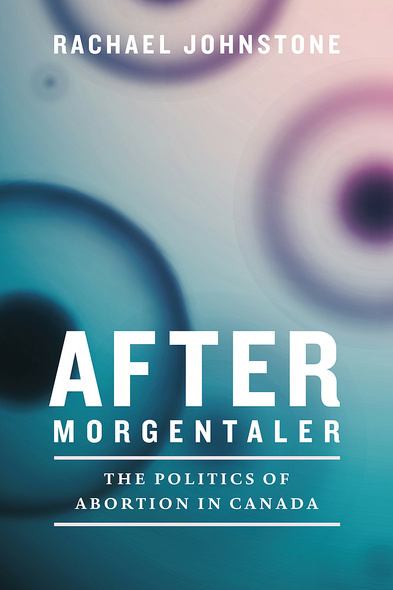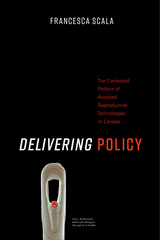
The landmark decision R. v. Morgentaler (1988) struck down Canada’s abortion law and is widely believed to have established a right to abortion. Although the decision removed one legal barrier, its actual impact is much less decisive, and women’s access to abortion in Canada remains uneven and at risk of being curtailed.
In After Morgentaler, Rachael Johnstone examines the state of abortion access in Canada today, maps its historical development since 1988, and argues that substantive access is essential to full citizenship for women. When the Morgentaler decision recast abortion as a health care issue, jurisdiction over the procedure shifted to the provinces, each of which chose to regulate access differently. Johnstone presents three provincial case studies – Quebec, Ontario, and New Brunswick – to demonstrate the role of both state and non-state actors in shaping access across the country. Informed by the current frameworks employed by reproductive-rights advocates in Canada, this book affirms the need to recognize abortion as an issue fundamentally tied to women’s equality while stressing the continued utility of rights claims as a means to improve access.
This timely, comprehensive account yields new insights into the legacy of Morgentaler in contemporary Canada.
This book will be of interest to scholars in the fields of women and politics, gender and public policy, women’s health and reproductive politics, and Canadian women’s history.
'After Morgentaler provides a nuanced examination of the legislative and judicial actions that shaped access to abortion in Canada in the late twentieth and early twenty-first centuries.'
'After Morgentaler is an important and compelling contribution to Canadian abortion scholarship.'
In addition to making a strong case for reconceptualising abortion as a right of citizenship for women, this book offers a useful study of comparative provincial politics and health care more generally.
After Morgentaler will quickly occupy benchmark status in the comparative health care and reproductive-rights policy literatures. Through case studies, Rachael Johnstone illuminates the strategies of pro- and anti-choice groups, and health-professional organizations, by situating them in Canadian institutional, legal, and political history. The result is a clear argument for why shifting to a positive-rights understanding of the Charter is needed to safeguard women’s constitutionally protected access to reproductive health care.
Rachael Johnstone has written a highly accessible and engaging account of abortion rights in Canada, arguing persuasively that the right to abortion is both precarious and partial, despite widespread public support and a legal regime that, at least nominally, grants women the right to terminate a pregnancy if they so choose. She powerfully demonstrates the limits of rights-based struggles and the nuances of the courts-versus-legislatures sideshow that can interrupt arguments for women’s reproductive choice.
After Morgentaler makes an important contribution to our understanding of how we got to where we are on abortion now in Canada and where we might go in the future. This is an engaging and enlightening read.
Rachael Johnstone is an assistant professor at the Bader International Study Centre (Queen’s University, Canada) in the United Kingdom, where she instructs courses in both political studies and gender studies. She has written extensively on the politics of abortion in Canada.
Introduction
1 The Anti-abortion, Pro-choice, and Reproductive Justice Movements
2 Federal Politics and the Supreme Court
3 Abortion in the Provinces
4 Abortion as Health Care
5 Social Movement Activism in the Provinces
6 Never Going Back
Appendices; Notes; References; Index









